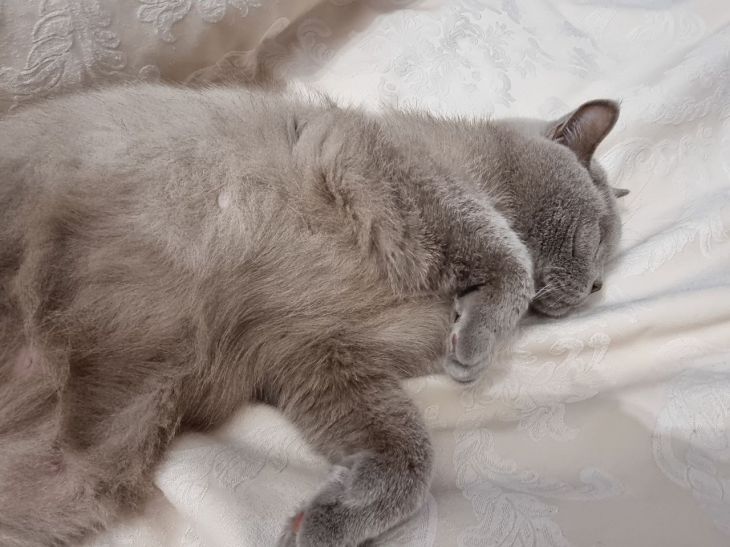Is it okay to wake up a cat when it's sleeping: a scientific view
A cat's sleep is a complex physiological process during which the animal's body recovers.
Cat behavior experts emphasize the importance of respecting your pet's resting time.
Features of cat sleep
Nature has given cats a unique sleep pattern that differs from humans. The animals sleep in portions, alternating short periods of deep sleep with a sensitive drowsy state.
Adult cats sleep about 16 hours a day, which is due to their predatory nature.
Cat sleep phases
Cats' sleep is divided into several phases, each of which plays an important role in the body's recovery.

Superficial sleep is characterized by light drowsiness, during which the animal can instantly react to external stimuli. Deep sleep is accompanied by complete muscle relaxation and active brain function.
The Impact of Forced Awakening
Waking up your cat abruptly can cause stress. Disruption of the natural sleep cycle can lead to irritability, aggressive behavior, and health problems.
Regular forced awakening can negatively affect the mental state of the pet.
Situations that require awakening
There are circumstances in which waking up a cat becomes necessary.
Taking medication, visiting a veterinarian, or an emergency may require disrupting your pet's sleep. In such cases, awakening should be as gentle as possible.
The right ways to wake up
Gentle awakening of the cat is achieved by gradually increasing external stimuli.
The owner's quiet voice, light stroking or quiet sounds will help the animal wake up naturally. Sharp movements and loud sounds are unacceptable when waking up a pet.
Consequences of incorrect awakening
A rude interruption of sleep can provoke a cat's defensive reaction. A suddenly awakened animal can show aggression, scratch or bite.
In addition to the immediate reaction, regular sleep disruption leads to chronic stress in the pet.
Signs of healthy sleep
Normal cat sleep is characterized by calm breathing and a relaxed posture. A slight twitching of the paws or whiskers is considered a natural manifestation of the REM phase.
Careful observation of your sleeping pet will help you determine the optimal time for communication.
Organization of comfortable rest
Creating favorable conditions for a cat's sleep promotes harmonious relationships between the pet and its owner.
A comfortable sleeping place, located away from noisy areas of the apartment, provides the animal with quality rest. Maintaining a constant feeding regime helps establish a natural rhythm of sleep and wakefulness.
